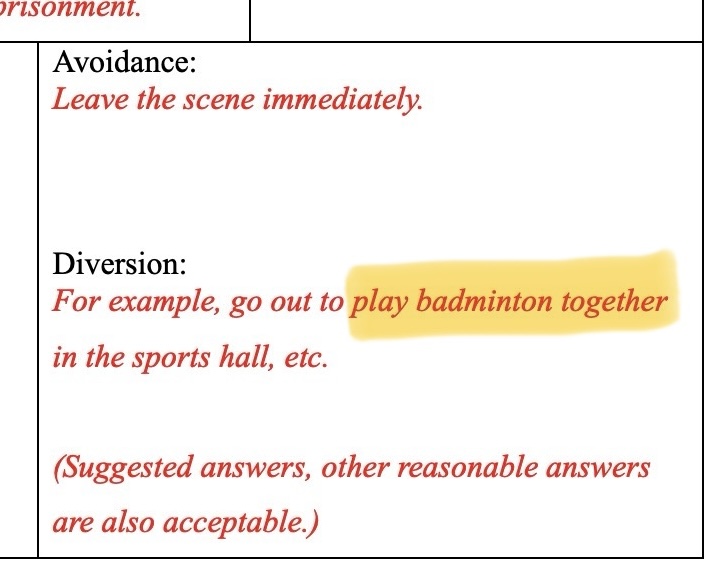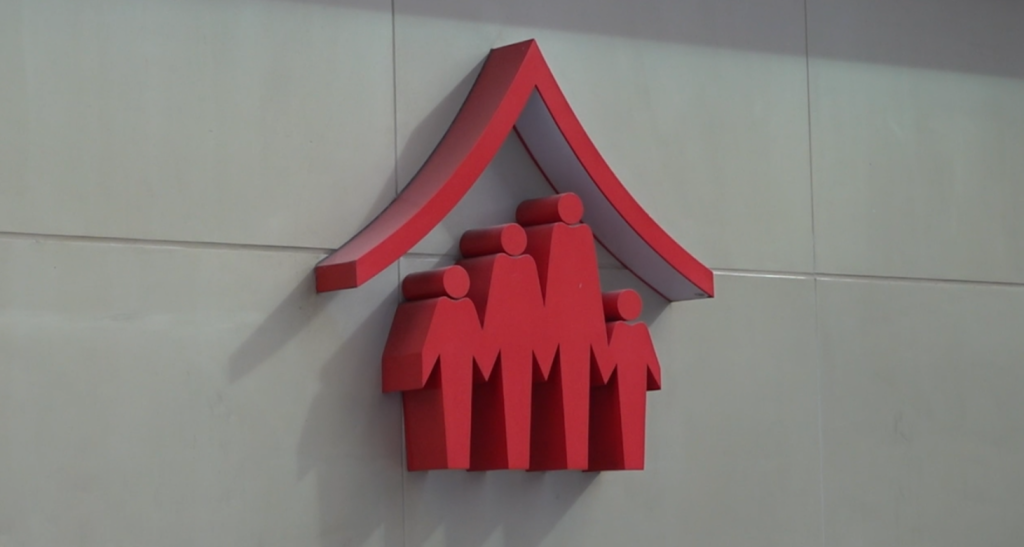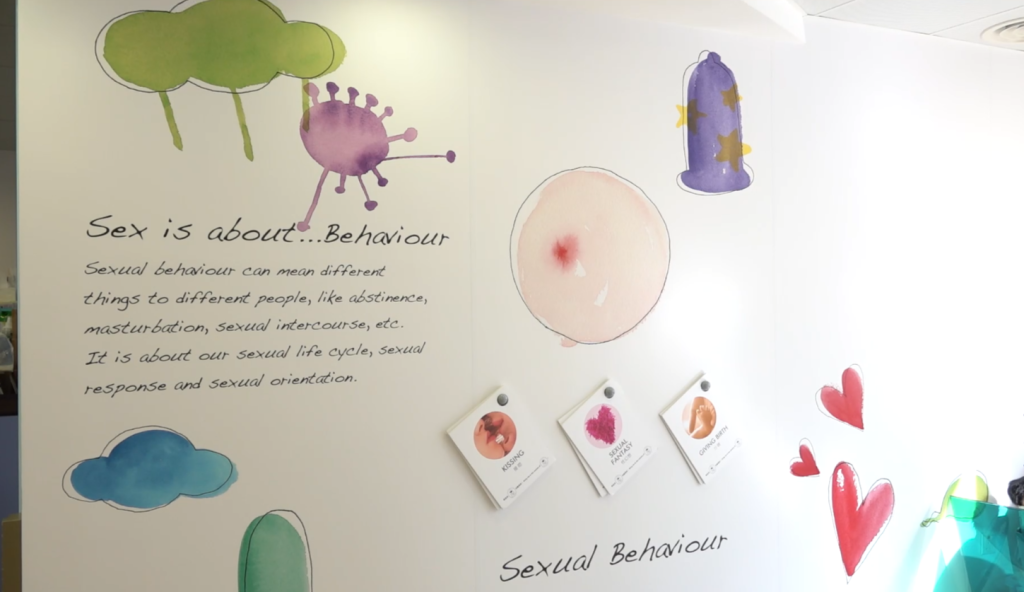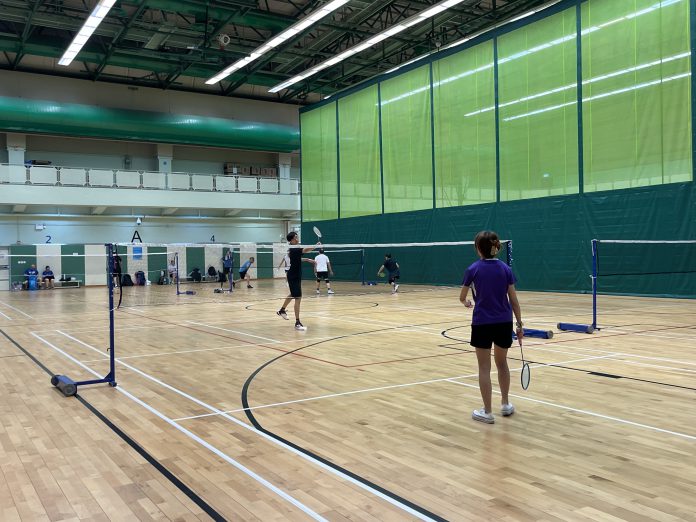Education Bureau advises Hk students to quell sexual desire by playing badminton.
By Cindy Lee and Daniel Koong
Playing badminton has become a code for sex in the wake of a set of government sex education teaching materials asking young boys and girls to quell sexual desire and avoid premarital sex.
The 70-page document released by the Education Bureau in August last year suggests young people should focus on study. When experiencing sexual impulses, they should go out and play badminton together in a sports hall.
It also includes a form called “My Commitment” aimed at getting “young lovers” to attest that they would exercise “self-discipline, self-control, and resistance to pornography”.

Since then, people across the city could not resist poking fun at these suggestions that “playing badminton” has become Hong Kong’s version of “Netflix and chill”.
“Students now use terms like “playing badminton” to refer to sex. I think Hong Kong is still quite conservative when people talk about sex. Many young people have sex without really understanding what it means,” Shatin Pui Ying College form six student So Wing-fung says.
Eighteen-year-old student Patrick Lam Paak-Hin who is also studying at Shatin Pui Ying College thinks the government rolled out the new teaching materials out of good intentions. “But they ended up being a subject of ridicule. The materials should be revised,” he says.
“Teachers should not just explain how to use a condom but should actually demonstrate it,” Lam says.
Form Four student Clarinda Lee Cheuk-yau from Baptist Lui Ming Choi Secondary School finds sex education is almost nonexistent in Hong Kong education curricula.
“Students have to seek advice elsewhere rather than learning about sex in school. I think more should be done in schools,” Lee says.
“Sex education is not properly taught in school. Teachers only mention a little about birth control preventive measures. I hope the subject can be included in the curriculum and students can have more in-depth knowledge about sex,” the 15-year-old student says.
In August 2024, the Education Bureau launched an updated curriculum for sex education under the Citizenship, Economics, and Society, a new subject for Form One to Form Three students in Hong Kong.
Under the new teaching curriculum, sex education will be taught in Form Three in secondary school to students aged 13 to 14. It also covers advice on building a correct value system and what teenagers should do to control their sexual desires.

Education manager of the Family Planning Association of Hong Kong Grace Lee Ming-ying points out that sex education should be introduced to children once they are born.
“The training should start when they are babies, starting from the family. Kids spend most of their time with their parents and have trust in them. Parents sharing what they believe with their children is the best way to guide them,” she says.
Lee says school time is very limited and that it is impossible to teach students everything.
“The school schedule is very tight and there are only one or two lessons spare for sex education every year which means not much can be covered,” she adds.
Lee believes the government’s suggestion is to encourage young people to handle their sexual desires positively.
“We often encourage young people to face their sexual urges by focusing on proper communication with their partners. The most important thing is to have an open discussion and agree on healthy boundaries for intimacy,” Lee adds.

Sky Siu, the Chief Executive Officer of Mother’s Choice, notes sex is a taboo in Hong Kong, making it difficult to do sex education in schools.
“It’s a pretty uncomfortable subject matter that most people and families don’t enjoy bringing into conversation. People need to realise that sex is a normal part of our life and our relationships,’ she says.
“When we first started our comprehensive sexuality education program, it was targeted at young girls to make sure young people have the right information so that they could make informed choices for themselves,” Siu says.
Since its establishment in 1986, the charity organisation has helped over 54,000 young girls with crisis pregnancy.
Siu points out that the updated sex education curriculum has been much needed since it was last updated in the 1970s.
“The curriculum has more room for improvement, but it is a promising start. We hope to see the curriculum become mandatory so that it doesn’t get lost in the difficult challenges of scheduling in an academic setting,” she says.
In a written reply, the Education Bureau says it will “continue to maintain contact with the academic sector and various relevant groups to provide and optimise sex education courses and teaching materials that meet the growth needs of primary and secondary school students in Hong Kong”.
The bureau adds that teaching materials were compiled by the School of Education and Languages of the Metropolitan University of Hong Kong, which was commissioned by the Education Bureau in 2021. The production team is composed of experienced experts and scholars, senior social workers, and teachers.







































